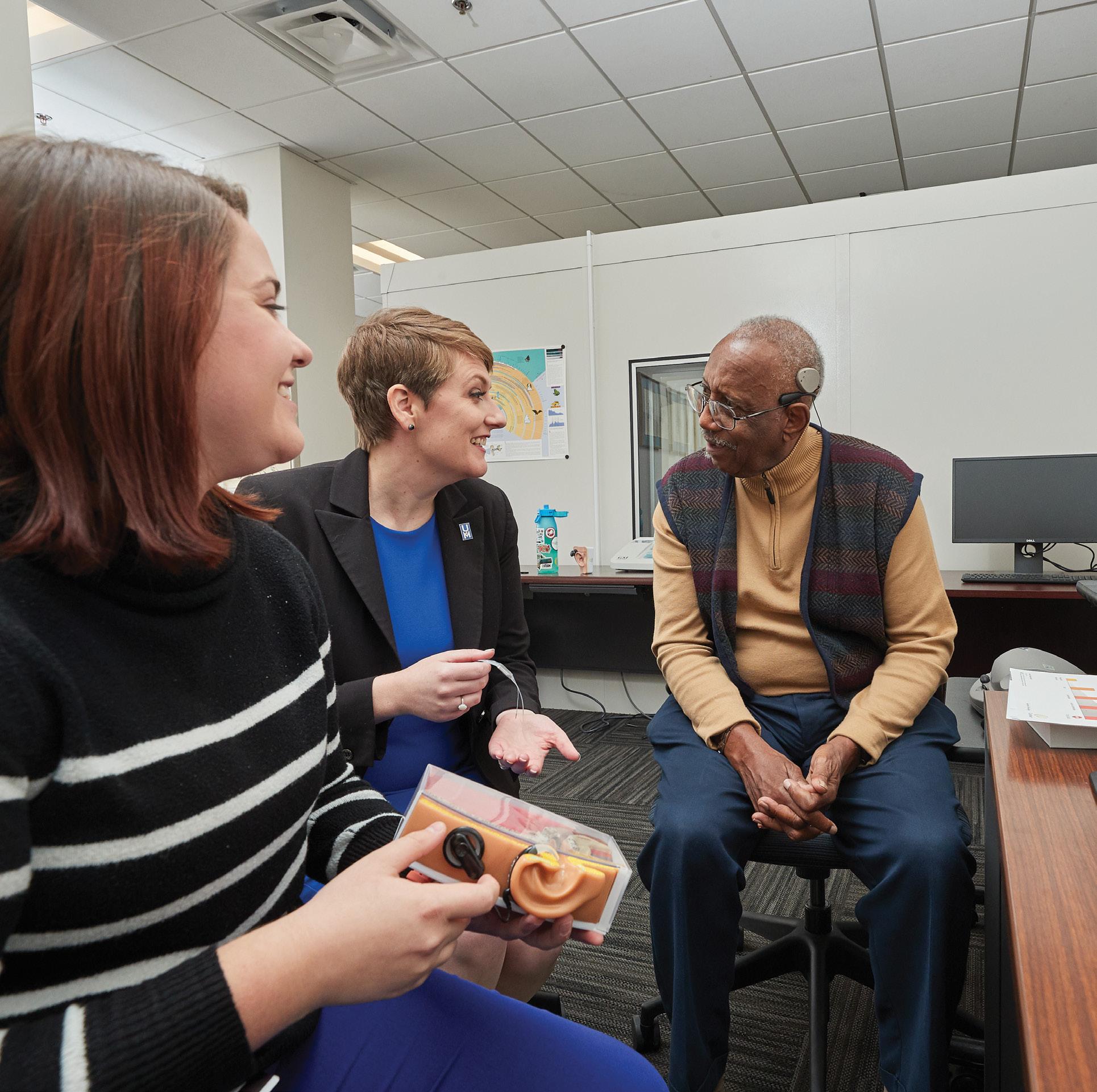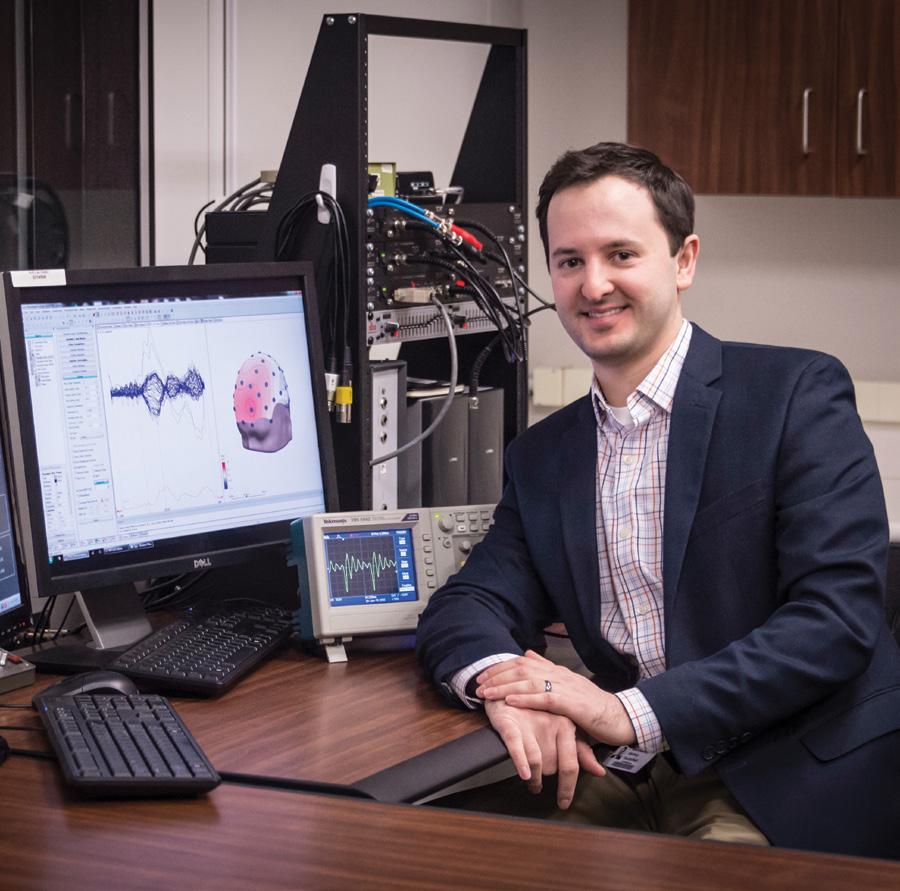HEARING
RESEARCH
Auditory Cognitive Neuroscience Laboratory memphis.edu/acnl
Gavin M. Bidelman, PhD is associate professor in the School of Communication Sciences and Disorders. Dr. Bidelman received his B.M. in Music Theory and his BS in Sound Engineering from the University
musicianship, learning, bilingualism) and hearing deficits associated with hearing loss and aging. A particular interest of the lab is to identify biomarkers that predict successful hearing in
of Michigan and a PhD in Hearing Science from Purdue University. He completed postdoctoral work at the Rotman Research Institute-Baycrest Centre for Geriatric Care in Toronto. He joined the University of Memphis faculty in 2012, where he directs the Auditory Cognitive Neuroscience Laboratory (ACNL). Dr. Bidelman holds a joint appointment with the Institute for Intelligent Systems and is an affiliate of the University of Tennessee Health Sciences Center Department of Anatomy and Neurobiology. Dr. Bidelman has published more than 100 journal articles on the relation between brain function and human hearing and is associate editor for the journals Frontiers in Neuroscience and Psychomusicology. His research has been funded by the National Institues of Health, American Hearing Research, American Academy of Audiology and GRAMMY® Foundations and has been featured in the New York Times and CBS News.
“cocktail party” environments (e.g., analyzing speech in noise). The lab uses an interdisciplinary approach to understand audition through a coordinated blend of techniques including neuroimaging (EEG/ERPs), psychoacoustics and computational modeling. Electrical responses are recorded from the human nervous system and “decoded” to decipher how brain activity relates to hearing skills. Studies also investigate the neurobiological relationships between music and language.
Research Interests Our research aims to understand the neurobiological underpinnings of speech and music perception and how the auditory system encodes and renders hearing behaviors. We study both normal auditory processing, the neural plasticity associated with different listening experiences (e.g.,
8
Current Research and Applications Translational applications of Dr. Bidelman’s research include novel signal processing and detection algorithms to accelerate clinical evoked potential testing, early identification of auditory impairments via objective brain indices and neurorehabilitation. Recent ACNL studies have demonstrated that early changes in the brain’s response to speech can be used as a biomarker for identifying mild cognitive impairment before the emergence of behavioral deficits. Bidelman’s research also suggests that musical training has a profound impact on brain function and can partially counteract the cognitive and auditory declines that occur later in life.
Future Endeavors Using novel electrophysiological methods developed in the lab, Dr. Bidelman and his colleagues are recording neural activity generated simultaneously from the cochlea, brainstem and cerebral cortex to identify emergent properties of auditory perception and map changes in neural coding that occur across the lifespan, with listening experiences and with novel learning. Simultaneous recordings of brainstem and cortical neural responses are detailing how the brain’s representations for speech change in impoverished auditory systems affected by sensorineural hearing loss and cognitive impairments. Collectively, Dr. Bidelman’s work demonstrates that auditory perceptual skills in normal and impaired hearing depend critically on how successful (or unsuccessful) information is transferred between different levels of the auditory system (i.e., functional










